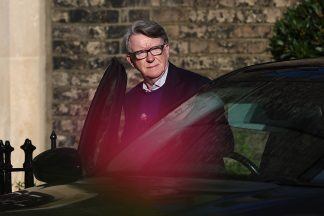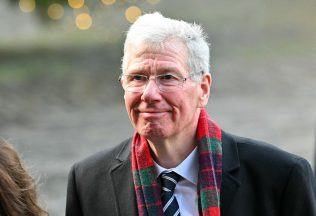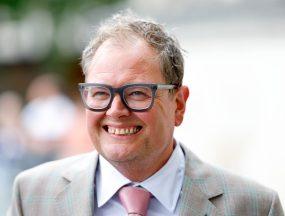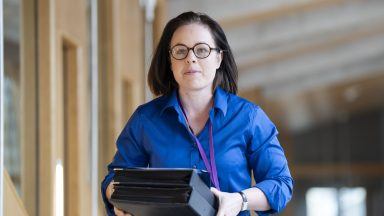A £32m commitment from the Scottish Government to recruit almost 140 new trainee doctors could see junior medics being used to “plug gaps” in the workforce, rather than “make a real difference”, the profession has warned.
Health secretary Humza Yousaf said there would be a “significant expansion of trainee doctors”, with 139 additional trainees to be taken on in those areas of the NHS that have come under greatest pressure as Scotland looks to recover from the Covid-19 pandemic.
This, he said, showed the “Scottish Government’s commitment to support the NHS, not only in response to the pandemic but also as we look beyond and plan ahead to build long-term resilience”.
However, the British Medical Association cast doubt over the relative scale of the increases compared to the challenges the NHS is facing.
Meanwhile, the Royal College of Physicians of Edinburgh stressed the new recruits needed to be “part of a clear workforce plan for the coming decade”.
The posts were announced as the NHS comes under sustained pressure during the ongoing coronavirus crisis, with NHS Lanarkshire having moved to the highest risk status while other boards have warned people not to attend accident and emergency unless their condition is “life-threatening”.
Trainee doctors currently make up more than two-fifths (44%) of the doctors employed by NHS boards.
The new posts will see most successful applicants start from autumn 2022, in specialties including cancer, anaesthetics, intensive care, public health and respiratory medicine – but there will be psychiatry training places with a start date of February next year.
Yousaf said: “Our healthcare staff have been vital in our response to Covid-19, which has reinforced the importance of ensuring we have the right staff in the right place at the right time.”
NHS Education Scotland (NES) medical director and deputy chief executive Professor Stewart Irvine said: “We very much welcome this announcement of additional postgraduate training posts across a wide range of medical specialties for 2022 recruitment.
“NES will continue to develop our programmes to ensure that we offer the best possible training for those who choose to pursue their medical career in Scotland and to support our future NHS workforce needs.”
Dr Lailah Peel, chair of the BMA’s Scottish junior doctor committee, welcomed the investment but added: “The relative scale of these increases compared to the challenges the workforce faces means we risk these junior doctors being used simply to plug gaps given the current stretched state of the workforce, rather than make a real difference to workforce shortages in both the short and long term.
“There are also still considerable consultant vacancies in Scotland along with that huge pressure on the workforce, and as such we need to ensure there is sufficient time and resources for training both the junior doctors we already have and the additional posts.
“Without our senior counterparts, that will be a very difficult task to do.”
She stressed any investment “must be part of a comprehensive and long-term workforce plan which moves beyond year-on-year fluctuations and also allows us to support existing staff to help them get through this coming winter and beyond, so they do not choose to leave the NHS prematurely as a result of exhaustion, stress or feeling undervalued”.
Dr Peel concluded: “This investment to train more doctors is welcome – but it needs to be part of a much bigger plan and the Scottish junior doctor committee looks forward to working with the Scottish Government, and employers, to take things forward.”
Dr Miles Mack, chairman of the Scottish Academy of Medical Royal Colleges, also welcomed the expansion as a step to tackle workforce shortages.
He said: “We have been recommending an increase in training numbers for some time, and it is very encouraging that the Scottish Government has listened to advice and has responded.
“We now need to ensure that these doctors have a good training experience and that the consultants and GPs who train them have time to do so effectively.”
Professor Andrew Elder, president of the Royal College of Physicians of Edinburgh, said: “The college has consistently called for greater investment in the medical workforce, so this funding for additional trainee posts is very welcome.”
However, he added: “Doctors have been under immense pressure during the Covid-19 pandemic, which has resulted in heavier workloads and excessive working hours – impacting doctors’ morale.
“Unfortunately, doctors had already been facing heavier workloads before the pandemic and the college is very clear that Covid-19 has exacerbated the problem, rather than having caused it alone.
“While the college welcomes the additional trainee posts, we would caveat that this needs to be part of a clear workforce plan for the coming decade. Scotland has a long and proud tradition of excellence in medical training and education and this must be sustained.
“Medical trainees must be given the time to focus on medical education while working – and consultants must be given the time to teach trainees.”
Follow STV News on WhatsApp
Scan the QR code on your mobile device for all the latest news from around the country


 iStock
iStock

























